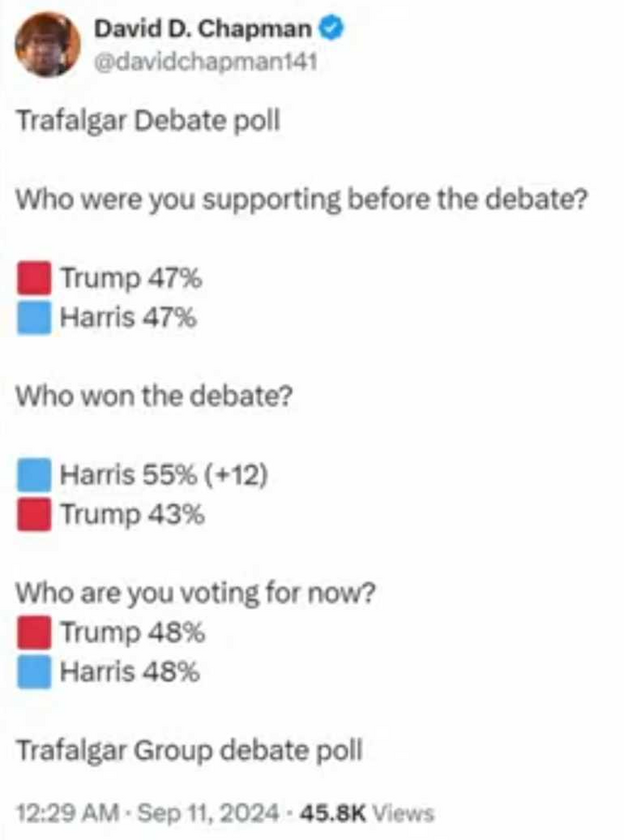The recent debate, which many believed would spell doom for Donald Trump, has instead sent shockwaves through the Democratic ranks, particularly impacting Kamala Harris. The anticipated three-against-one ambush was expected to deal a significant blow to Trump’s momentum, but post-debate polls suggest quite the opposite. For Kamala Harris, the polls are not only disappointing but reflect a much deeper issue that could unravel her campaign’s standing as the 2024 election approaches.
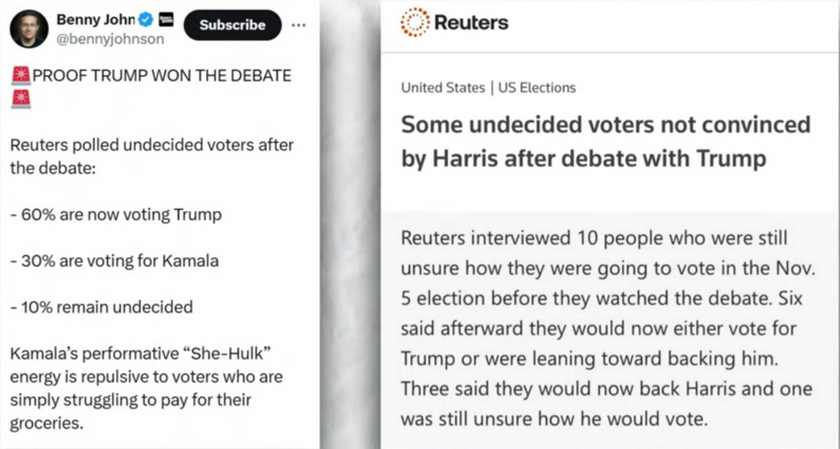
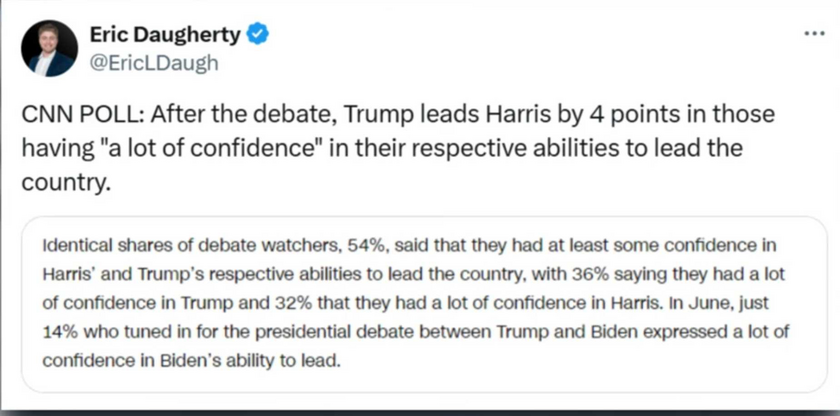
Why the Media Can’t Control the Narrative Anymore
In previous election cycles, media outlets had more sway over public opinion. Many expected Harris to dominate the conversation with the help of favorable moderators and biased fact-checking. However, something has drastically changed since 2012, 2016, or even 2020. Public trust in the legacy media has hit rock bottom, with Gallup polls showing a historic lack of confidence in these institutions. This loss of trust is significant because voters now have access to alternative platforms, like X (formerly Twitter), where they can bypass traditional media gatekeepers and form their own conclusions.


For instance, one of the most searched topics after the debate was “Haitians eating pets,” a reference to Trump’s controversial statement about Haitian migrants in Ohio. Despite immediate pushback from debate moderators, people quickly took to their phones, researching the validity of Trump's claims. This trend shows that the mainstream media's influence has diminished significantly, making room for grassroots fact-checking that often aligns more with Trump's base than with elite punditry.
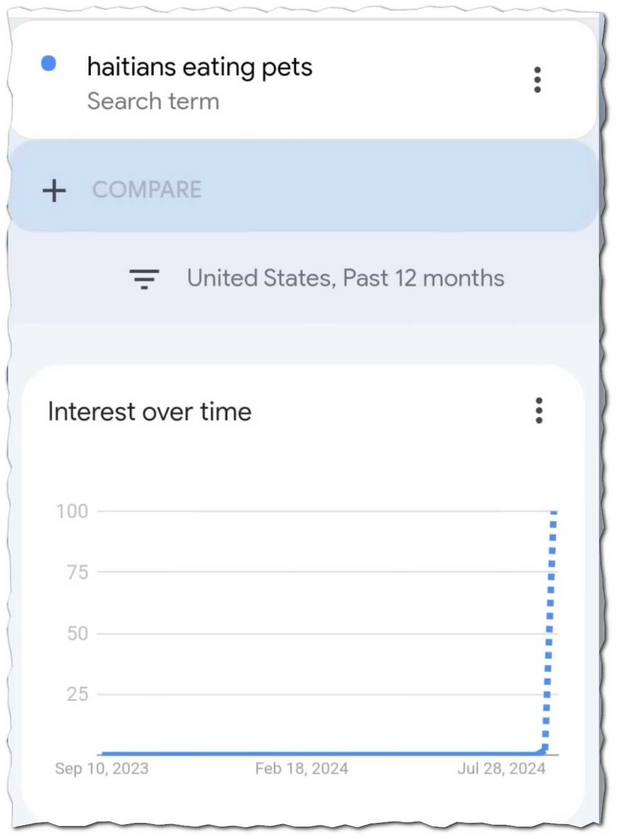
The People vs. The Political Class
A key shift in this election cycle is the growing divide between political elites and ordinary Americans. Even outlets like The New York Times acknowledge this dynamic. While political pundits overwhelmingly declared Harris the winner of the debate, the undecided voters—the true metric for any political contest—did not share the same sentiment. According to a Reuters focus group, 60% of undecided voters are leaning toward Trump after the debate, with only 30% backing Harris.

This reveals a growing dichotomy: the political class, who feed on corporate media narratives, is increasingly disconnected from the general populace, who are turning to alternative sources of information. This divide was further evidenced in a CNN flash poll that showed Harris losing ground on critical issues like the economy, even though many viewers thought she performed better in the debate. CNN viewers, many of whom lean Democrat, gave Trump a significant lead on issues like economic competence and leadership ability.

Kamala’s Bigger Problems: Voter Registration and Swing States
Beyond the post-debate polls, the Democrats face a structural challenge that could prove even more damaging: voter registration trends in key swing states. According to political analyst Larry Schweikart, voter registration numbers in places like Arizona, Pennsylvania, and Florida show a massive advantage for Republicans. In Arizona, Republican registration has more than doubled since 2020, while in Florida, Republicans now outnumber Democrats by nearly a million, a complete reversal from 2020 when Democrats held a significant lead.


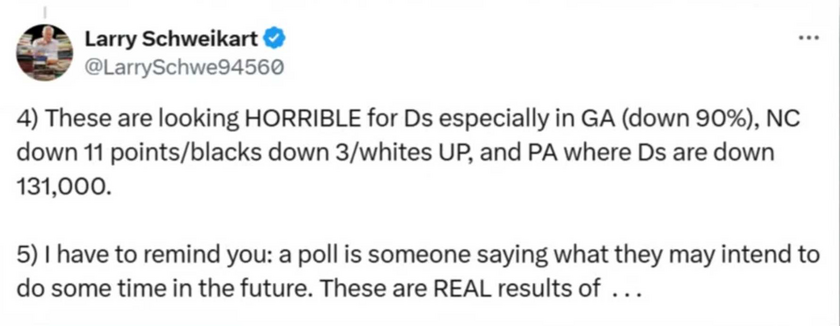
Even more concerning for Democrats, early vote-by-mail numbers—a metric they traditionally dominate—are plummeting. In Georgia, mail-in ballot requests are down by 90%, and in Pennsylvania, they are down by over 60%. Black voter turnout, another critical Democratic base, is down significantly in early voting, while white voter turnout—among whom Trump enjoys a double-digit lead—is up considerably.
Conclusion: A Looming Disaster?
The post-debate polling, along with collapsing voter registration and early voting trends, suggests that Kamala Harris is facing an uphill battle. While media pundits may try to spin the debate as a win for her, the reality on the ground tells a different story. As Republicans continue to surge in key swing states and Democratic strongholds crumble, the chances of a Harris victory seem more remote by the day.